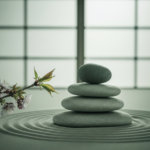Our one and only daughter has gone off to college. My wife and I dropped her off the weekend before. As we made the four-hour drive from Houston to Baton Rouge along I-10, the road stretched ahead, both endless and fleeting, as if time itself were torn between holding on and letting go. Between bursts of laughter and quiet silences, we spoke of classes, friendships, boys, the discipline of focus, and, most importantly, the questions that shape a life, namely: the “whys” she must never forget. Every word, every pause, was filled with the kind of love parents hope will echo in a child’s heart long after they are gone. We tried to hide the ache of knowing she was no longer entirely ours.
Though it is barely two weeks since she left, my wife is already unraveling. She worries about everything under the sun; what Nkechi eats, whether she is safe, if she is truly happy. She insists she should never take an Uber alone, only with friends, because the world can be unkind, and mothers, as if by instinct, always imagine the worst.
I like to think I am handling it a little better, but that is only half true. My worries are quieter, perhaps, but they linger all the same. And the irony is not lost on me: the fact that she has always been such a good kid, responsible, grounded, never giving us reason to lose sleep, has done little to ease the weight of our imagination running wild. The human mind, I have found, is endlessly creative in fabricating disasters where none exist.
As humans, it is striking how we conjure entire catastrophic scenarios out of uncertainty. An email from the boss with the subject line “See me” feels like a summons to doom. A delayed call from a spouse morphs into betrayal. A mild headache becomes the seed of a brain tumor in our imagination. And so, long before anything real has happened, we have already lived through the suffering.
Seneca, the stoic philosopher of Ancient Rome, captured this human folly almost two millennia ago when he observed: “We suffer more often in imagination than in reality.” Pain in reality is bounded, finite, and tangible. Fear in imagination is infinite, merciless, and without borders. Michel de Montaigne, centuries later, echoed the same truth: “My life has been filled with terrible misfortunes, most of which never happened.”
As an intensivist working with the very sick, I can testify that Seneca’s wisdom plays out daily at the bedside. It is not always the illness itself that consumes the sick, but the anticipation of it. I have seen patients scheduled for surgery tormented by the night before, unable to sleep, gripped by the fear that they may not make it through. Yet once the operation is done, and the tubes and machines are withdrawn, many discover that the suffering of anticipation was far worse than the ordeal itself.
Families, too, live through this cycle: they suffer the loss of loved ones many times in their imagination before the actual moment arrives. And when it does, when reality finally demands its share, they often find that it is bearable, even infused with moments of grace, solidarity, and unexpected courage.
One of my most important duties as a doctor, beyond prescribing medications and adjusting ventilators, is helping patients and families disentangle real suffering from imagined suffering. To remind them, sometimes gently and sometimes firmly, that they need not die a thousand deaths in their minds before reality arrives.
History offers further confirmation of this truth. During the major German bombing campaign against the United Kingdom in World War II, popularly known as the London Blitz, psychologists observed that the anticipation of bombings often created greater anxiety than the bombings themselves. Once the sirens stopped and the bombs fell, people adapted, found courage, and built community amid the rubble. Reality had boundaries; imagination had none.
And it is not just in war or illness. In everyday life, we experience the same dynamic. How many tasks have we procrastinated on because we imagined they would be unbearable, only to discover, once begun, that they were manageable, even easy? How many conversations have we avoided because we pictured them spiraling into conflict, only to find, in reality, that honesty brought relief?
Again and again, the dread proves worse than the deed.
The problem is even magnified in our digital age. Every headline predicting collapse, every social media feed amplifying disaster, every algorithm pushing sensational fear stories keeps us in cycles of imagined suffering. We doomscroll our way into panic, prisoners of “what if,” sacrificing the present to a future that may never arrive.
The tragedy is that imagined suffering is not harmless. Chronic anxiety triggers cascades of stress hormones, raising blood pressure, impairing sleep, weakening immunity. Our bodies pay interest on emotional debts we do not owe. We rehearse pain, and in doing so, we harm ourselves twice: once in anticipation, and once if it comes, in reality.
None of this is to deny the legitimacy of suffering. Illness, loss, betrayal, and failure are all part of the human condition. But when they arrive, they arrive clothed in the particular, not in the boundless infinity of our imagination. Reality, no matter how brutal, often brings with it surprising gifts: resilience we never knew we had, compassion from others, and the discovery of meaning even in pain. I have seen patients facing terminal illness with dignity, families rallying around loved ones, communities rising from tragedy with solidarity and courage. In these moments, reality turned out far kinder than the imagination that preceded it. For reality, unlike fear, comes not only with pain but with the possibility of grace.
The question becomes, how do we resist the tyranny of imagination? We cannot silence it altogether, but we can refuse to be its prisoner. We can name our fears and write them down, often discovering their absurdity on paper. We can anchor ourselves in the present, paying attention to what is actually happening rather than what might happen. We can test our fears against evidence, asking: What do I truly know, and what am I assuming? We can recall the resilience we have shown in the past, trusting that we will rise again. And above all, we can refuse to suffer twice. When hardship comes, it will demand its share, let us not pay it in advance.
Seneca’s’ wisdom remains revolutionary because it cuts across centuries and cultures. We suffer more in imagination than in reality, and reality, for all its sharp edges, often proves kinder than we fear. My wife and I must learn this lesson as we watch our daughter begin her journey into the world and navigate life on her own terms. We must not live through our funeral before our death. Life is already difficult; it does not need the added weight of rehearsed tragedies. I just finished reading a memoir by Femi Otedola, one of Nigeria’s wealthiest men, and in it he shared a reflection that has stayed with me. Paraphrasing his words: There is a time to be born and a time to die, but in between, we must learn how to live. To truly live, requires us to resist the tyranny of imagination; the endless rehearsals of suffering that never comes, the fears that rob us of the moment we are standing in. It is the art of inhabiting the present without dying a thousand little deaths before the final one. For the secret of a life well lived is not in banishing fear altogether, but to suffer only what is real.
Osmund Agbo is a pulmonary physician.





















![Stopping medication requires as much skill as starting it [PODCAST]](https://kevinmd.com/wp-content/uploads/The-Podcast-by-KevinMD-WideScreen-3000-px-4-190x100.jpg)
![Weaponizing food allergies in entertainment endangers lives [PODCAST]](https://kevinmd.com/wp-content/uploads/The-Podcast-by-KevinMD-WideScreen-3000-px-3-190x100.jpg)


![AI censorship threatens the lifeline of caregiver support [PODCAST]](https://kevinmd.com/wp-content/uploads/Design-2-190x100.jpg)
